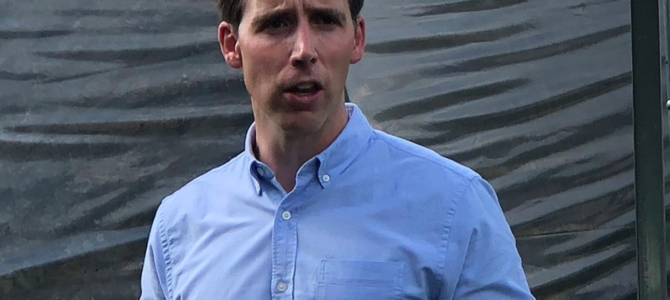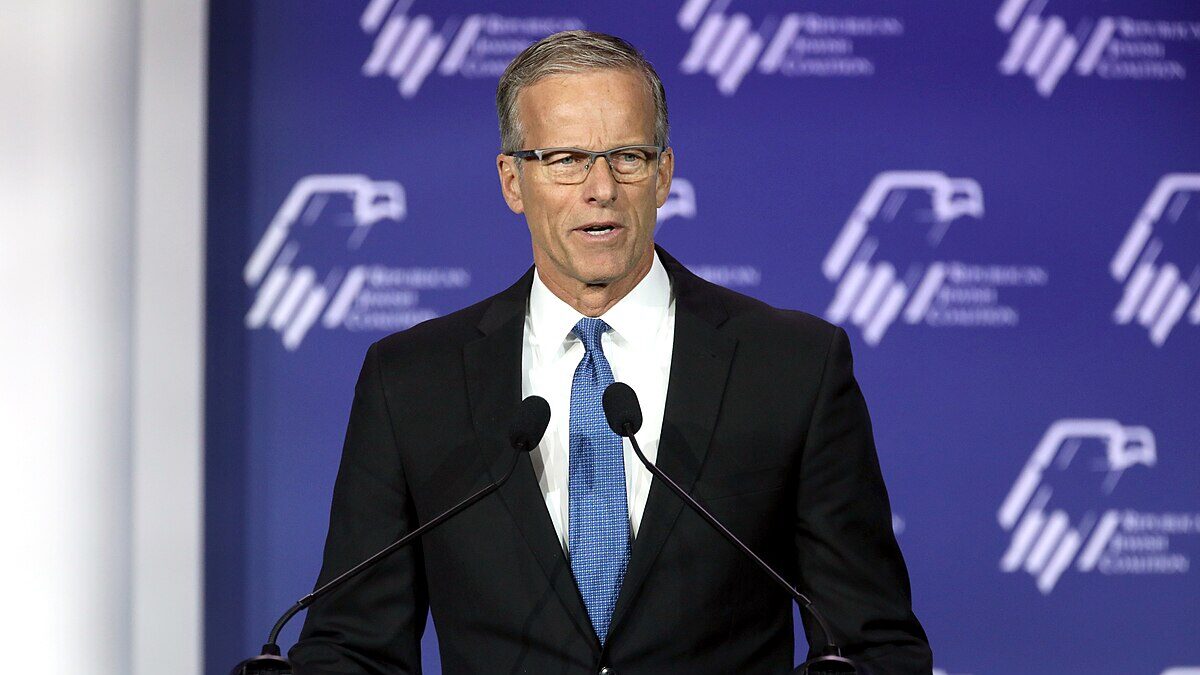
Toilets should not leak into dining rooms. That incident was probably the nadir of the various indignities I’ve endured as a renter. Not only was it was gross, it epitomized a landlord whose approach to maintenance was never to do today what could be put off until tomorrow, next week, or next year.
Waste-water dripping into the dining room was too much for even him to ignore (and he ignored plenty), but his response was to patch it as cheaply as possible. I know later tenants had to deal with the same problem.
Nonetheless, I’ve generally had it good; most of my landlords have been okay, and some have been outstanding. In most of the places I’ve rented, landlords have dealt with problems promptly and professionally. But not everyone is so fortunate.
That is why I’m glad to see Sen. Josh Hawley bringing attention to, and demanding investigation of, some deplorable rentals in the St. Louis area. This sort of practical political effort offers a glimpse of what a reconsidered conservative approach to economic justice might look like.
I’ve spent this afternoon at Bridgeport Crossing Apartments in St. Louis County. This is the neighborhood owned by TEH Realty, which this week I asked US Attorney & HUD to investigate. After seeing myself I can say conditions are shocking & landlord must be held accountable pic.twitter.com/nUKiIgVWR1
— Josh Hawley (@HawleyMO) November 23, 2019
Hawley’s Actions Refresh Calcified Economic Thinking
Hawley’s championing the little guy against the slumlords does not directly challenge conservative economic orthodoxy. However, the fact that it feels so fresh for a Republican senator to do so suggests the right has overlooked something in its calcified economic thinking.
In theory, holding slumlords to account should long have been a concern of conservatives. Negligent and dishonest landlords are in violation of their legal duties, which ought to arouse the wrath of the law-and-order crowd. They are in breach of their contractual obligations, which should aggravate the free-market sorts. They are engaged in classic oppression of the poor, about which the Bible has much to say, so Christian conservatives should also be eager to see them get their comeuppance. And for the politicians, it is probably a vote-winner.
Yet conservatives tend not to get riled up about the oppression practiced by the sort of landlords who refuse to mend broken plumbing or to repair broken furnaces in wintertime. A variety of explanations may be offered, with varying degrees of charity and accuracy. Some might blame cold, hard cash — there is much money to be made from squeezing the poor, and those making it can afford good lobbyists and lawyers. Others might look at class interests, racism, or some combination thereof.
More charitably, I suspect this is not a problem that many of those active in conservative politics know personally. To the extent they do think about it, they may believe the market should take care of it. After all, slumlords provide an inferior product, so they should go out of business unless government intervention distorts the market in ways that protect them, in which case the solution is for the government to stop such interference. But though there is sometimes truth to this comforting story of how the arc of economic freedom bends toward justice, it often ignores other aspects of these cases.
What Happens When the Market Isn’t Free?
For instance, it is much easier to get out of a bad restaurant than a bad rental. Not only is moving often difficult and expensive, but leases usually carry significant penalties for tenants who break them. In theory, both the lease and the law hold landlords to specified obligations, but in practice, it is often difficult for tenants to try to enforce them. An unscrupulous landlord has the advantage over a poor tenant, as the poor often lack the resources needed to litigate (or to plausibly threaten to litigate) against a landlord who is in violation of a contract.
Of course, some terrible tenants pay late or not at all, trash the place, and make life miserable for their neighbors. These tenants can hurt small landlords in particular, so we must take care not to assume every tenant or landlord dispute is the fault of the latter.
What stands out in either case, whether that of slumlords or destructive deadbeats, is the vulnerability of the small before the dishonest and unscrupulous. Tenants with resources are unlikely to rent from a slumlord in the first place, and they will be able to get out if they do. On the other side, big corporate landlords can absorb losses from bad tenants more readily than their smaller counterparts can.
This offers an illustration of why size is relevant to conservative considerations of economic liberty. Does economic liberty have the same meaning for a small family business as for a massive publicly traded multinational corporation? Should it?
A conservative understanding of economic justice should take account of the human need for human-sized economic interactions. We are used to hearing about economies of scale, but we should perhaps be more interested in the scale of economies.
Concentrated Power Can Threaten Liberty
Conservatives ought to be suspicious of private-sector behemoths, as well as the Leviathan of government. We should recognize that the concentrated power of corporations can also be a threat to our liberty (Google comes to mind), and remember that inhumane size lends itself to injustice, even without any particular malevolence.
Hawley’s salvo against slumlords is thus in accord with his campaign to reign in Big Tech and its manipulation and exploitation of its users, for whom informed consent is effectively impossible. No one reads the terms of service of EULA for each website or piece of software; we just click “Accept” and hope for the best, often in vain. Big Tech is often less interested in selling things to us than in selling us. We are the product — tracked, analyzed, and sold to whoever wants our data and our attention.
In each case, Hawley is trying to protect individuals from the depredations of large corporations that exploit customers and users. We might therefore expect pushback and debate of the sort that has greeted economic heterodoxies from Hawley, Sen. Marco Rubio, and others. But in this case, there is no expansion of government power to warn of, nor any attack on the free market system. There is simply a renewed focus on government’s responsibility to protect the ordinary and the poor from exploitation by the wealthy.
Hawley and other GOP reformers want more, of course. But their right-wing opponents would be wise to join them in efforts such as Hawley’s campaign against St. Louis slumlords. The self-appointed defenders of the free market only discredit themselves and their system by appearing indifferent to bad actors within it.
Small government should not mean indifferent or incompetent government. Conservatives should not allow our defense of property rights to obscure the need to vigorously enforce the obligations of contract, and we should be especially zealous on behalf of those who are poor.









